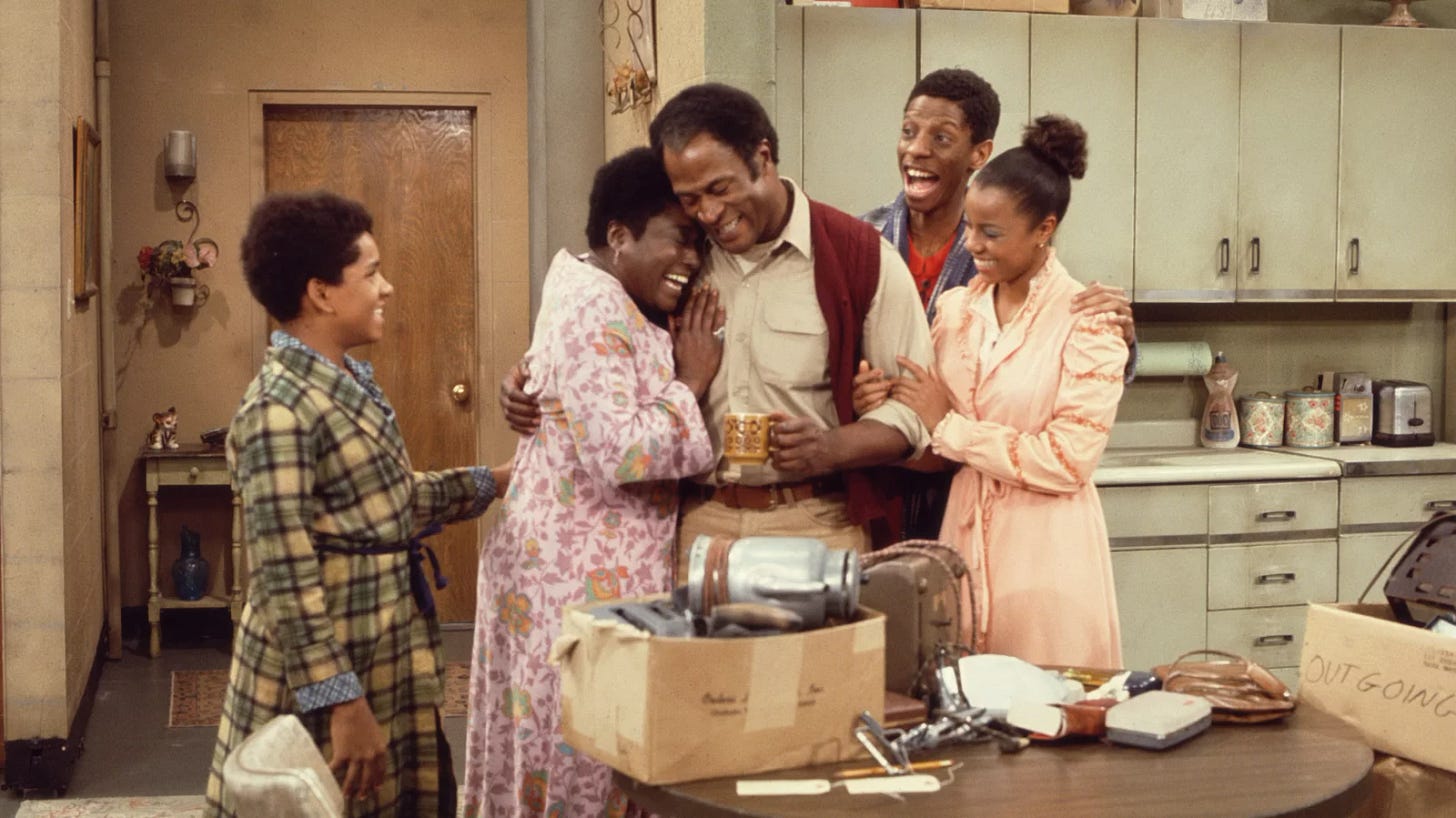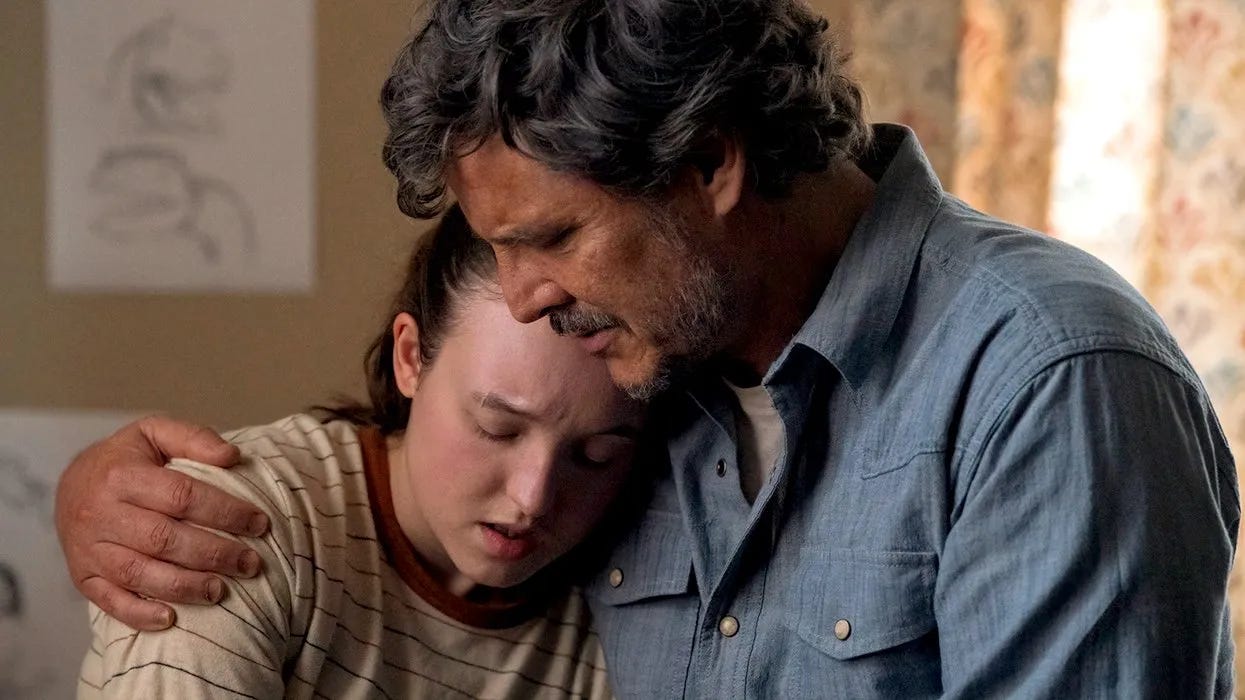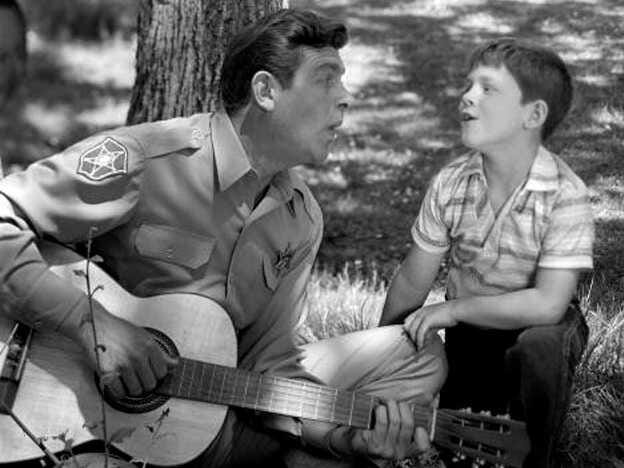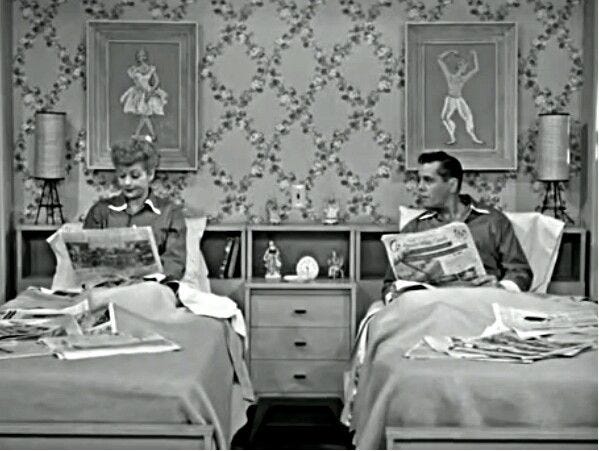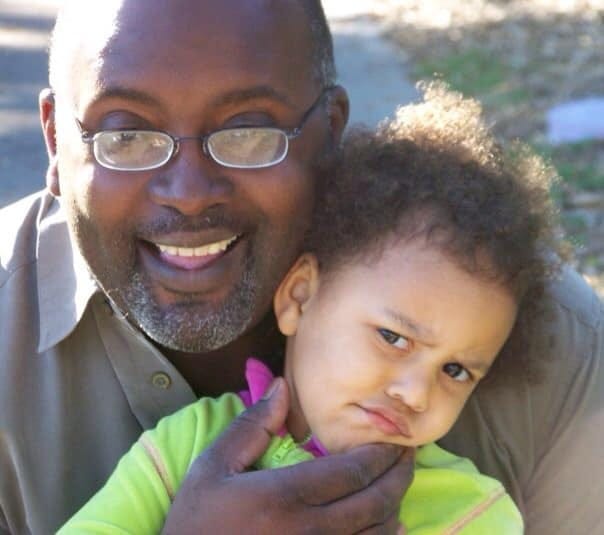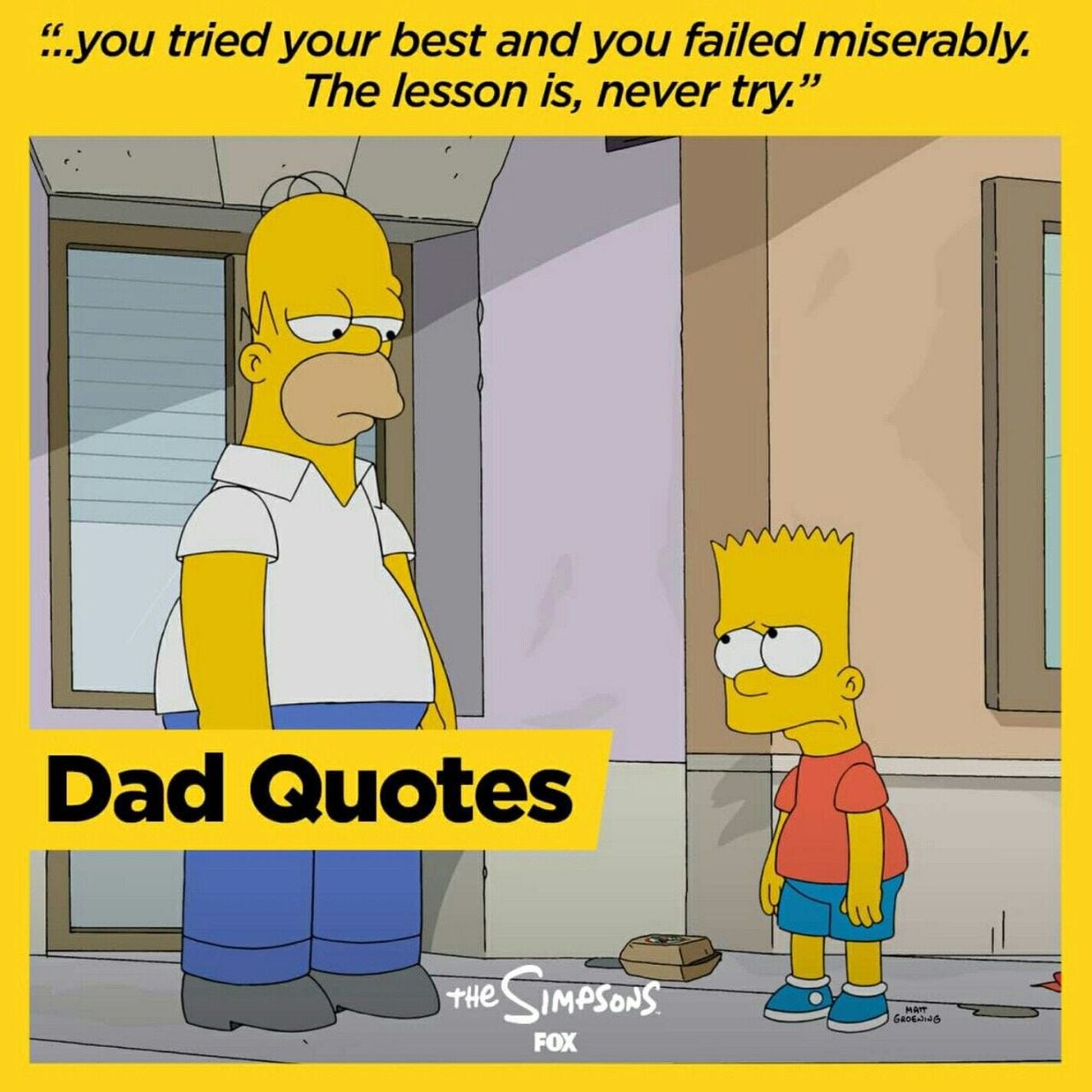Searching for TV dads to admire on Father's Day
As the holiday rolls around this year, I'm struggling to find fathers on the small screen worth emulating.
It has been a while since I’ve seen a TV dad who really inspired me.
Yes, it was touching to see how Pedro Pascal’s Joel revealed his fatherly love for Bella Ramsey’s Ellie on the zombie drama The Last of Us this season, crafting an acoustic guitar for her and helping her move into a garage apartment, even though it made him feel more distant from her. I talked a bit about this on NPR’s Pop Culture Happy Hour podcast.
But Joel ultimately couldn’t be honest with Ellie about the stuff that really mattered when she could make choices about it. And his willingness to tell her lies so she would accept decisions he made for both of them nearly destroyed their relationship, leading her to spend a lot of their time together hating and distrusting him.
Jason Segel’s Jimmy Laird on Shrinking is so hobbled by grief that he can barely perceive what his daughter is going through, as she also grieves the lost of her mother/his wife killed by a drunk driver. Zach Cherry’s Dylan G. on Severance is so success-challenged in the real world, he can only excel in the cult-like confines of a job at Lumon Industries.
I love the loyalty and passion Titus Welliver’s principled cop-turned-private investigator Harry Bosch has for his daughter, Madison Lintz’s Maddy Bosch, on the Prime Video series Bosch and Bosch: Legacy. But he also has a severe case of “do as I say, not as I do,” which constantly undermines the lessons he tries to teach Maddy as she builds her career as a patrol officer.
It’s compelling to watch dads like Bosch or The Lincoln Lawyer’s Mickey Haller try to make up for past mistakes with their now-grown children. But I have a tough time looking up to fathers who weren’t there when their kids were young and really needed them — likely because I experienced the same issues myself as a child.
And even though lots of people will cite dads from traditional old school shows like Andy Griffith, Pa Walton or The Brady Bunch’s Mike Brady, those guys seemed to live in TV universe so sanitized and ujnreal, I never connected with them much (I also didn’t connect with a more contemporary figure who often presented himself as a good parent — Bill Cosby. But it wasn’t because of his sexual assault accusations or longtime rumors he cheated on his wife — the vision of fatherhood he presented just seemed a little old fashioned to me as a kid.)
As I have written in the past, because I didn’t grow up with a father in my home, I learned a lot about what I might want to be as a father from watching TV. In fact, I thought most married couples slept in separate, twin beds because that’s how Lucy and Ricky Ricardo did it in I Love Lucy (of course, it was really because TV executives in the 1950s didn’t want to communicate that a married couple might actually be sleeping together – even when they wrote Lucille Ball’s real-life pregnancy into the storylines.)
The truth is, I learned most about what it REALLY means to be a father from my own children. How to handle the fear that comes when they have an illness you can’t easily treat. Or how to set fair and consistent boundaries with all of your children, when some get under your skin a bit more than others. Or how to process the anger that comes when ideologues and bigots try to score political points by demonizing people like your children — I say this as a parent to kids who are Black, female and transgender.
But my hopes as a dad – the way I imagined I would react when I had little ones under my care – those were forged by watching TV shows. I’ve written about what I learned from TV about being a dad for NPR and other places. Please take a little time to listen to the radio story here.
Here’s a quick synopsis:
John Amos as James Evans Sr. on Good Times: When I saw John Amos on Good Times, I felt like I finally saw a dad who was something like the other fathers on my block, and something like the dad I could have had. Yeah, he was often angry and threatened corporal punishment WAY too often for my tastes, especially back then. But he worked hard, loved and valued his kids, encouraged them to get educated and take advantage of every opportunity and wanted nothing more than for them to do far better than he ever would. It wasn’t just that James Evans was Black; it was that he was a Black man whose primary goal was taking care of his wife and kids.
John Goodman’s Dan Conner on Roseanne taught me how to make space for a strong wife and mom, but assert yourself when circumstances require.
Bill Bixby’s Tom Corbett on The Courtship of Eddie’s Father taught me the power of a parent paying attention.
I like fathers who show that being a dad takes effort and intention, like Michael Rapaport’s Doug Gardner on Netflix’s Atypical.
And even though Milo Ventimiglia’s Jack Pearson is modern TV’s best dad on This Is Us” I identify a lot more with his adopted son, Sterling K. Brown’s Randall Pearson. In the same way Randall, as a black man raised in a white family, had to learn what being black meant to him, I had to learn what being a father meant to and for me.
In the same way he found and reconciled with his biological father shortly before his death, I reconciled mostly with my dad before he passed. And Randall has a goofy earnestness mixed with a capacity to work a little too hard on stuff that takes him outside the family, which I also – sadly — can relate to.




